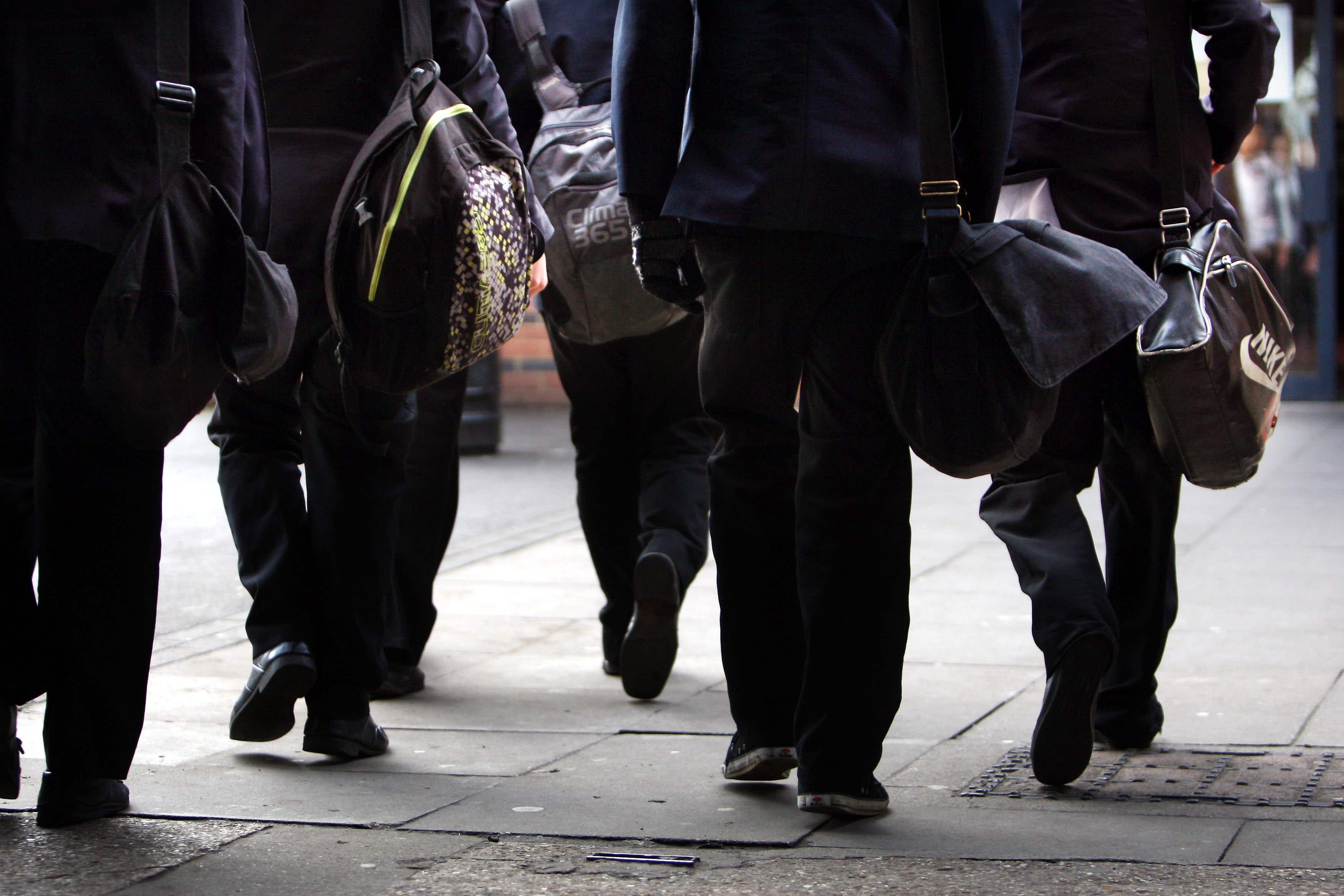Schools forced to go ‘cap in hand’ to communities to plug funding gaps – union
One headteacher said his school relied on contributions of tens of thousands of pounds from parents to help pay for equipment and resources needed.

Your support helps us to tell the story
From reproductive rights to climate change to Big Tech, The Independent is on the ground when the story is developing. Whether it's investigating the financials of Elon Musk's pro-Trump PAC or producing our latest documentary, 'The A Word', which shines a light on the American women fighting for reproductive rights, we know how important it is to parse out the facts from the messaging.
At such a critical moment in US history, we need reporters on the ground. Your donation allows us to keep sending journalists to speak to both sides of the story.
The Independent is trusted by Americans across the entire political spectrum. And unlike many other quality news outlets, we choose not to lock Americans out of our reporting and analysis with paywalls. We believe quality journalism should be available to everyone, paid for by those who can afford it.
Your support makes all the difference.School leaders are having to rely on community fundraising and parental donations to plug funding gaps for classroom essentials, a union has warned.
The majority of school leaders (95%) in England have had to generate additional income through other sources – like charity grants and fundraising – to cover basic costs for core resources, a survey has found.
One headteacher said his school relied on contributions of tens of thousands of pounds from parents to help pay for the equipment and resources needed.
It’s an unacceptable situation and these decisions are not in children’s best interests. It’s becoming harder to maintain our status as an excellent school
A poll, of more than 1,000 members of the school leaders’ union NAHT in England between April 10 and 23, found only 1% said they currently receive enough funding to fully meet the needs of all their pupils.
Paul Whiteman, general secretary of the NAHT, said school leaders are having to go “cap in hand” to communities to afford teaching staff, classroom materials and play equipment at a time when many families are “struggling”.
More than half (53%) of school leaders surveyed said they have had to generate additional income to cover costs of classroom materials, and nearly a quarter (24%) had to do this to cover staffing costs.
More than two in three (71%) needed to do so to fund play equipment and extra-curricular activities (69%), while nearly two in five (37%) had to raise funds to cover estate management and building repairs, the poll found.
The findings have been published ahead of the NAHT’s annual conference in Newport, South Wales on Friday and Saturday where members will debate a series of issues affecting schools, including funding.
Sean Maher, headteacher at Richard Challoner School, a secondary school in Kingston-upon-Thames, said the school relied on contributions of around £45,000 a year from fundraising by the Parent Teacher Association (PTA) and £35,000 from parents to help pay for equipment, resources and repairs.
What have things come to when schools are having to rely on charity and go cap in hand to local communities to afford teaching staff, classroom materials and play equipment at a time when many families are themselves struggling to get by?
He said: “Without the money raised through lettings and other income and from the PTA and parents we could not run the staffing model that we do or afford all the equipment and resources we need for our pupils.”
Mr Maher added: “I’ve never known the budget situation so dire. Everywhere you look there’s a squeeze on funding.
“We’ve already cut admin staff to the bone and we’ve had to lose four teaching assistants and three teachers over the last two years.
“Sometimes that means existing teachers have to take on more, sometimes we have to make changes to the curriculum which may mean it is not quite as broad and balanced.
“It’s an unacceptable situation and these decisions are not in children’s best interests. It’s becoming harder to maintain our status as an excellent school.”
Mr Whiteman said: “These truly alarming findings make crystal clear the devastating impact of funding shortfalls upon schools across the country.
“What have things come to when schools are having to rely on charity and go cap in hand to local communities to afford teaching staff, classroom materials and play equipment at a time when many families are themselves struggling to get by?
“School leaders do everything in their power to protect children’s education, but the reality is that funding shortfalls mean cuts to teachers and teaching assistants, larger class sizes, reduced subject choice, and less individual support for pupils.
“At their worst, they may even threaten the future viability of some schools.”